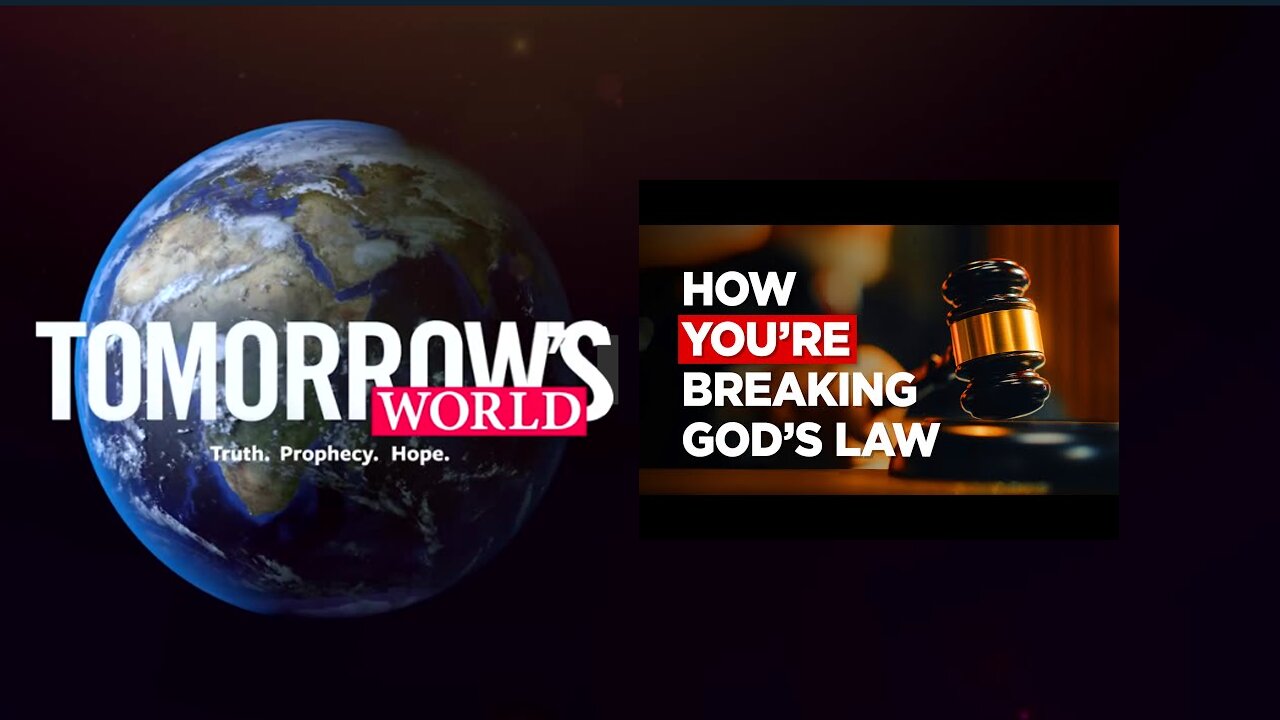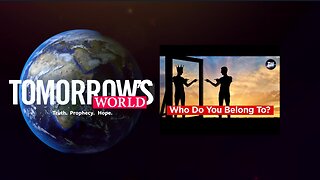Premium Only Content

The Amazing Truth About the Fourth Commandment
For a deeper understanding about God's Holy Sabbath, claim your complimentary copy of our Booklet: "Which Day Is The Christian Sabbath?" at no cost: https://bit.ly/3JfnTQ8. Why is this offer free of charge? It's our commitment to heed Jesus' directive to "freely give" (Matthew 10:8).
In his presentation, Mr. Ames meticulously dissects the contentious issue surrounding Sabbath observance within Christianity, offering a comprehensive examination that delves into its biblical roots, historical evolution, and contemporary relevance. He initiates the discourse by acknowledging the global tapestry of holiday celebrations, encompassing both secular and religious traditions, before pivoting to address the pivotal Sabbath controversy that has persisted throughout the annals of Christian history.
Anchoring his discourse in Acts 13:42-44, Mr. Ames unveils a foundational biblical passage illustrating the early Christian adherence to Sabbath observance. Drawing on this historical precedent, he meticulously traces the trajectory of Sabbath worship's transformation into Sunday worship, spotlighting key figures such as Tertullian and Emperor Constantine, whose advocacy played pivotal roles in popularizing Sunday as a day of rest and worship.
However, amidst this historical transition, Mr. Ames deftly interweaves an illuminating exploration of the New Testament's steadfast affirmation of Sabbath observance. He navigates through Hebrews 4:8-10, skillfully articulating the Sabbath's symbolic significance as a harbinger of rest and salvation in Christ. Moreover, he underscores the resilience of Sabbath-keeping communities across epochs of persecution, exemplified by the Sabbatarian Church in Rhode Island, serving as beacons of unwavering fidelity to biblical precepts.
In his elucidation of theological underpinnings, Mr. Ames contends that Sabbath observance epitomizes a faithful adherence to God's commandments, diametrically opposed to the reliance on tradition and ecclesiastical authority to justify Sunday worship. Marshaling insights from eminent Catholic theologians and Protestant luminaries, he compellingly argues for the scriptural dearth underpinning Sunday observance, underscoring the imperative for a return to biblical veracity in matters of faith and practice.
Throughout his discourse, Mr. Ames adeptly invokes the exemplar of Jesus and the apostles, who steadfastly upheld Sabbath observance and imparted their adherence to subsequent generations. In conclusion, he exhorts viewers to introspectively contemplate the import of Sabbath observance in their spiritual journey, extending an invitation to engage with the wealth of resources offered by Tomorrow's World as they navigate this perennial theological conundrum.
Questions that this video will answer.
1. What biblical evidence supports the observance of the seventh-day Sabbath as the true day of worship for Christians?
2. How did the tradition of Sunday worship emerge, and what historical events led to its widespread adoption?
3. What role did the Apostle Paul play in the observance of the Sabbath among early Christians, as recorded in Acts and other New Testament texts?
4. Can we find continuity between Old Testament Sabbath observance and its relevance for Christians today, as depicted in the book of Hebrews?
5. How do various religious denominations interpret and apply the teachings regarding Sabbath observance, and what are the implications for contemporary believers seeking to follow biblical principles?
-
 20:18
20:18
Tomorrow's World - Rumble
22 days agoHappiness Does Not Come from Fulfilling YOUR Desires
48 -
 11:18
11:18
Dr Disrespect
2 days agoDr Disrespect: THE BEST AND WORST OF GAMESCOM 2025
107K17 -
 2:10:12
2:10:12
Badlands Media
1 day agoDevolution Power Hour Ep. 383: Epstein, Durham, and the Dictator Narrative
83.8K49 -
 2:40:10
2:40:10
DLDAfterDark
8 hours ago $0.29 earnedDLD Live! Feat. Red Dawn Readiness! Glock FRT's - Striker Fire Safety Concerns - ACE Trigger
23.3K2 -
 2:40:21
2:40:21
BlackDiamondGunsandGear
7 hours agoAre ALL Striker Fired Pistols UNSAFE? // After Hours Armory
43.6K8 -
 6:34:50
6:34:50
SpartakusLIVE
11 hours ago#1 Saturday Spartoons on RUMBLE PREMIUM
113K7 -
 1:04:59
1:04:59
Man in America
12 hours ago“Summoning the Demon” — The AI Agenda Is FAR WORSE Than We Know w/ Kay Rubacek
50.5K36 -
 2:16:48
2:16:48
Tundra Tactical
10 hours ago $0.11 earned🎯💥 The World’s Okayest Gun Show 🔫😂 | LIVE Tonight on Rumble!
31.3K1 -
 3:36:03
3:36:03
Mally_Mouse
1 day ago🌶️ 🥵Spicy BITE Saturday!! 🥵🌶️- Let's Play: Tower Unite!
57.1K2 -
 58:59
58:59
MattMorseTV
10 hours ago $1.61 earned🔴Trump just BROKE Newsom.🔴
73.1K85